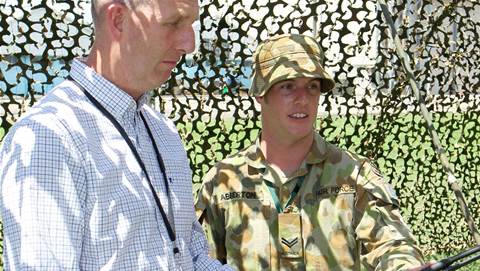
Some of the recommendations include a statutory cause of action for privacy invasion, mandatory data breach notification, and better security for health and financial records.
While the overall reaction to the recommendations was positive, some say the ALRC failed to include enough room for future emerging technologies, like social networking.
South East Water has been forced to virtualise more than 130 servers due to weight threshold of its data centre floors. The utility wasn’t able to add any more servers without consulting with building managers and couldn’t expand its floor space, so it made the choice to virtualise more than 80 percent of its servers.
Google Street View is in more trouble again this week. The program inadvertently caught images of a house on fire in Arkansas and posted them on the Internet. A Pennsylvania couple is also suing Google over Street View, claiming the images of their home on the Internet caused depreciation of their home and mental distress.
NAB is adding natural speech capabilities, dubbed Smarttalk, to its contact centres later this year to replace current Interactive Voice Response technology. Smarttalk combines speech recognition and intelligent routing to more easily solve customer inquiries.
Electronically stored information (ESI), like embedded metadata, cloud computing, and automated back-up schedules, are coming under heavy fire from courts both in Australia and abroad. Concerns are increasing over how these IT processes could implicate IT managers and CIOs in litigation proceedings.
And new reports claim that there is not enough action being taken against online criminals in the US, despite many worldwide security problems stemming from there. The reports say that only 40 percent of case time is dedicated to investigating fraudster, because officials would rather focus on high profile solicitation and pornography cases.


.png&h=140&w=231&c=1&s=0)
_(20).jpg&h=140&w=231&c=1&s=0)

_(23).jpg&h=140&w=231&c=1&s=0)



_(26).jpg&w=100&c=1&s=0)

 iTnews Executive Retreat - Security Leaders Edition
iTnews Executive Retreat - Security Leaders Edition












_(1).jpg&h=140&w=231&c=1&s=0)



